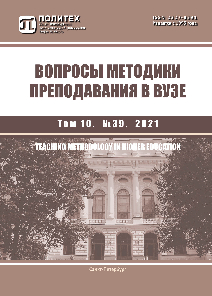Alternatives to Massive Open Online Courses from the Perspective of Their Integration into University Programs
The article discusses the possibility of Massive Open Online Courses' (MOOCs) integration into University curricula. The authors give a brief account of MOOC history and development. They also make an attempt to explain the reasons for the rapid growth in MOOCs' popularity, on the one hand, and escalating criticism by MOOCs' opponents, on the other hand. Statistics collected from scientific publications demonstrate the explosive growth in the numbers of MOOCS and students on MOOCs for the last 5 years. The goal of the research was to study the MOOC phenomenon and discuss the most prospective ways of MOOC integration into the curriculum of Linguistics students seeking Master degree at the Institute of Humanities of Peter the Great St. Petersburg Polytechnic University. Taking into account the detailed analysis of the educational technology faults and analysis of courses relevant to the Linguistics Master students' curriculum offered on different MOOC platforms, the authors do not find it advisable to integrate the MOOCs into regular University academic process with the aim of substituting classroom learning. However, MOOCs can be recommended as an informational resource for project work, term papers, master thesis, lifelong learning, and as a source of supplementary materials for the curricular courses. Open Educational Resources (OER) are considered as a viable alternative to MOOCs.



